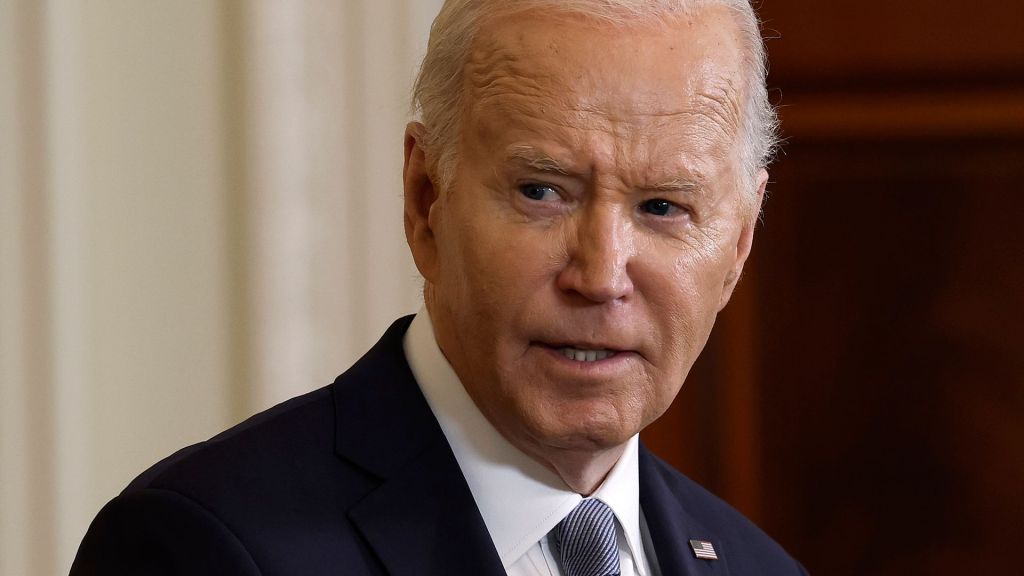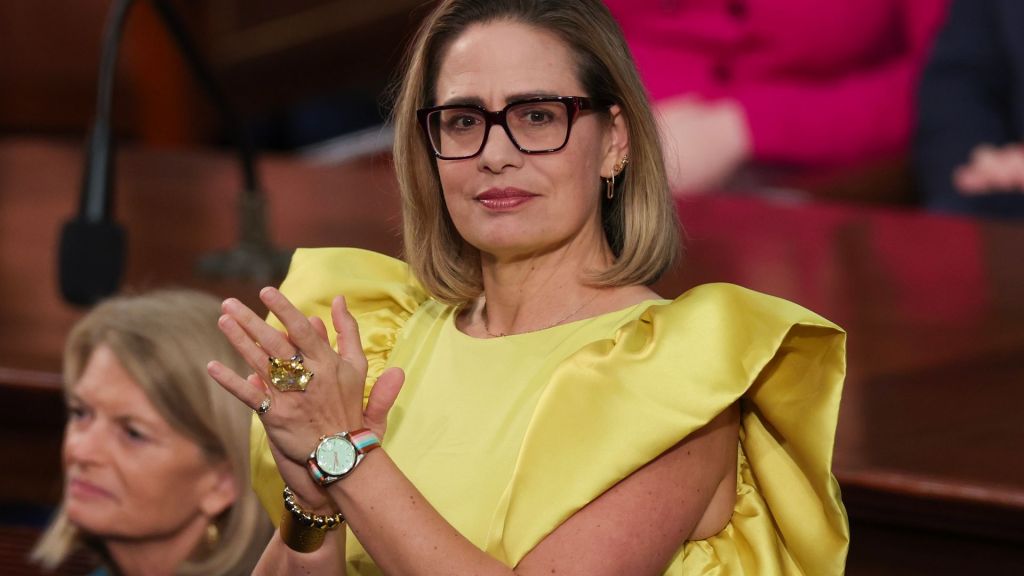Commentary
-
Our commentary partners will help you reach your own conclusions on complex topics.
So we had this recent Facebook, Instagram and WhatsApp outage, and it happened right after the unveiling of the Facebook whistleblower who previously released thousands of documents showing that while Facebook had data showing the negative impact of Facebook and Instagram, in particular on teen girls that they did not act on it and continued to prioritize what was, as the whistleblower described it, the most profitable sort of activity and engagement on the platform.
Now there’s a bunch of different issues here, some of which, uh, I at least as of yet don’t have much to say about. Like for example, was the Facebook outage deliberate in order to prevent the platform itself from being used to disseminate the interview with the whistleblower? I don’t…there’s people that are suspicious by nature who think the answer is yes, and people who think, no. I don’t, I don’t have any information one way or the other. Absent information that would lead me to believe that, it would be irresponsible to say, I think that that’s what took place.
What I think is more interesting are the sort of cultural and social implications of a Facebook and Instagram outage at this point in time. For me, I didn’t really feel it in any way. It happened during the workday. I’m not really on facebook or Instagram during that time. Had it been a weekend where I might be catching up with friends or whatever the case may be, using those apps might have been a different thing, For tons of people whose sometimes entire jobs, if not social lives revolve around using those apps, the impact was significant. But where I, the most interesting analysis or, or thought is comes from the issue of the effect on people’s emotional state of using these platforms. And quite frankly, it’s not great. I’ve said before, I’m unsure as to whether Facebook is a net positive or a negative right now.
And much of my focus has been on the spread of disinformation, particularly around elections, around science of vaccines and other conspiracy theories. Where are…are we really ahead? Or are we behind as a result of Facebook’s existence? The research on the effect of Instagram, uh, particularly with teen girls is extraordinarily concerning and a social psychologist, Jonathan Haidt has been talking about this for a long time and Jonathan Haidt, this is his research. Now this is the story he tells. Jonathan Haidt says, Instagram may be bad for everybody, teens in particular, but especially teen girls. Why? His explanation is that teen boys and preteen boys bullying and the like tends to happen in a more physical and in-person way that doesn’t translate that well to social media. You can translate some of it to social media, but it’s sort of a different animal with teen girls.
And these are generalities, but this is the way Jonathan Haidt has explained it. Much of teen girl bullying is based around social ostracizing, talking about people behind their backs, rumor spreading, et cetera, which is perfectly suited for social media and a platform like Instagram. And so the idea is that’s why it’s at least to, to some degree, particularly bad for teen girls. Intuitively it makes sense now with any kind of social science, we have to understand its limitations. We have to understand the point of these studies as they’re done. And there’s more information that we certainly need, but there’s a real question at this point as to particularly for young people, what is really the benefit of some of these platforms? And if you say, well, it’s messaging, there’s a ton of messaging apps. You can do text messages, group, text messages.
When I was young, we were on instant messenger. It didn’t have a lot of this other baggage associated with it. So the messaging could be moved elsewhere. Um, the news content and keeping up with what’s going on, we know that people who exclusively get news from, for example, Facebook tend to not be very informed. So as a news aggregation site, Facebook doesn’t really seem to be doing too much good for us. So I think there are simply real questions, about the pros and cons of social media to be considered. Now, I think there’s one other important point that require is it, I would be doing a disservice if I didn’t mention it very often when a new technology is explored, described, evaluated, people say, well, you know what? This is a great technology for allowing us to do X; Y is not so good.
We just have to prevent it from being used for Y and only for it to be used for, for X. So in other words, what people imagine is we can have this new technology, just take the good things and add them on to what the world was like before the technology and the bad things we can somehow keep out. Neil Postman in his book, Technopoly, which is a nearly 30 year old book, but extremely relevant today, explains that that is not a productive way to think about new technologies when movable type was invented. Um, there were concerns that, well, on the one hand, this could be used to make copies of texts, and now people who can have access to reading and information, but on the other side, this could take power away from the local priests and local churches, where they were the only ones who had the scripture.
Now everybody can have the scripture and analyze, well, we’ve gotta limit that, but that doesn’t work. The new technology irreversibly changes culture. When email Cal Newport writes about this, when email was added to work culture, you didn’t have pre email office culture with the ability to write emails. Now, email fundamentally changed the entire structure of work, moved in the direction of email, being a big part of people’s jobs. Just keeping up with communicating with people via email and less time spent doing the actual work. You couldn’t just say, well, we’ve just added email as a communication tool. Otherwise things stay the same. It’s the same with Facebook. It’s the same with Instagram. So when we talk about the pros and cons and the idea of limiting one and, and the other, if these technologies exist, then they alter culture in an irreversible way in the good and in the bad.
And I think what we’re finding with many of these platforms is that there’s a lot more bad than maybe we understood early on. I am not against these platforms as a general thing. I use these platforms personally, my show grows its audience by virtue of being on these platforms. And it’s merely about understanding that the negatives are very hard to limit in the context of the technology being available. And so to go back to the Instagram and Facebook outage, if anything positive comes from the outage, hopefully it’s people realizing everything was sort of fine like that. Whatever anxiety I normally have when I’m not near my phone and I can’t check, and I’m thinking about checking these platforms, it was actually fine. We just found something else to do. And that’s a great realization at this point in time.
-
Elon Musk budget cuts will devastate GOP voters
Elon Musk drew criticism last month for his call to trim the federal budget by $2 trillion, almost one-third of federal spending. Following that, U.S. Rep. Rich McCormick, R-Ga., confided with reporters that the incoming Congress would seek to cut “hundreds of billions of dollars” in key support services for low-income and elderly Americans like Social… -
Why Biden’s pardon of his son is justifiable
President Joe Biden is considering issuing broad pre-emptive pardons for individuals who might be targeted by President-elect Trump’s administration in retaliation for their involvement in his criminal cases. Biden recently issued an unconditional pardon for his son, Hunter, stating that he believed he had been unfairly targeted by political opponents. During his presidential campaign, Biden… -
Media gatekeepers falling down as online news influencers rise
The Washington Post lost over 10% of its paid subscription base after owner Jeff Bezos vetoed the editorial board’s presidential endorsement for Vice President Kamala Harris. MSNBC’s “Morning Joe” program lost one-quarter of its audience after news got out that the show’s hosts had traveled to Mar-a-Lago following President-elect Trump’s victory to privately discuss a… -
Trump’s win is hardly a landslide
President-elect Donald Trump secured a decisive victory, winning all swing states, the Electoral College and the popular vote. However, there is ongoing debate about whether it qualifies as a landslide by historical standards. While the vast majority of counties saw their margins shift in Trump’s favor, Trump won the popular vote by one of the… -
Top Democrat contenders for 2028 presidential run
Democrats are embarking on a soul-searching autopsy in the aftermath of the U.S. 2024 elections to try to understand how they lost the national popular vote for the first time in 20 years, in addition to losing both the White House and the Senate. A wide range of senior Democratic politicians, meanwhile, might already be…
Latest Opinions
-
 Getty Images
Getty Images
Biden considers commuting death row: Report
-
 Louisville Metro Police Department
Louisville Metro Police Department
Louisville police issue citation to homeless woman in labor
-
 Getty Images
Getty Images
New book accuses Spotify of promoting fake artists
-
 Getty Images
Getty Images
Andrew Cuomo sues for defamation after sexual harassment allegations
-
 Reuters
Reuters
Driver kills at least two in Germany Christmas market attack
Popular Opinions
-
In addition to the facts, we believe it’s vital to hear perspectives from all sides of the political spectrum.






